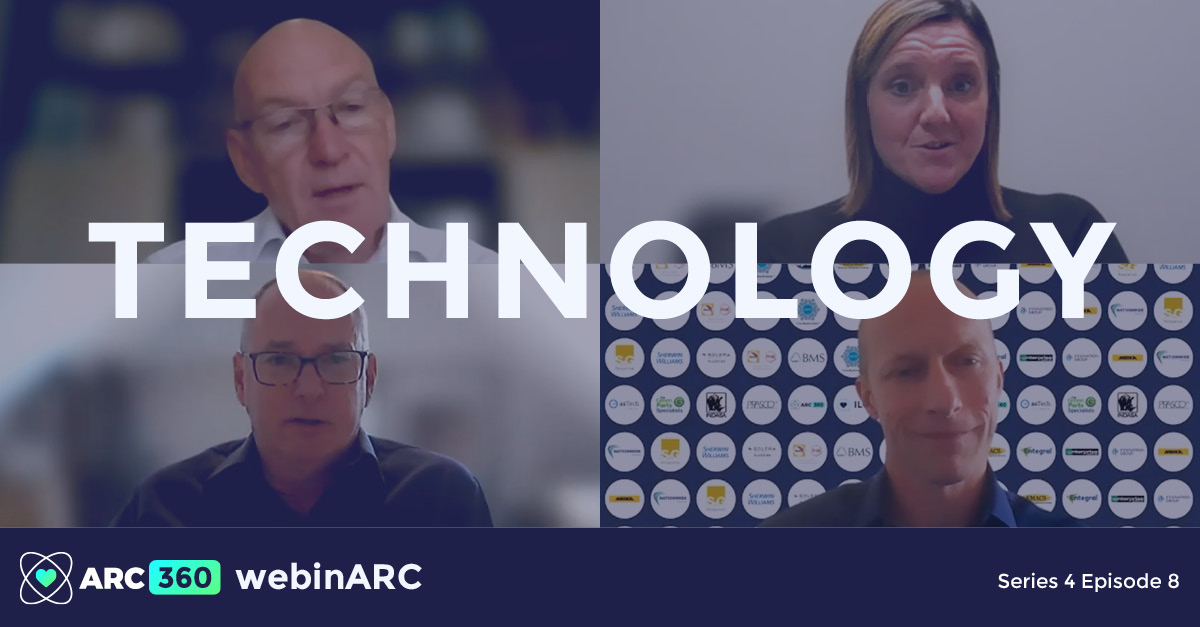Connectivity and integration are the keys to bringing the disparate technologies within automotive claims together and making them work for repairers, insurers and customers alike.
That was the message of the latest webinARC, which addressed the role technology can play in improving efficiencies and streamlining the customer journey.
Taking part were Claire Hart, National Sales Manager, Entegral; Jim Loughran, CEO, e2e; and Dave Shepherd, Director, Shepherd Advisory Services.
Connectivity
Claire said, “It’s all about connectivity. We need to make sure everyone has access to everything so they don’t have to log into different portals and different systems. We have a lot of disjointed parts to the repair journey at the moment and a large responsibility for keeping everything updated is still manual. That means the data is only really as good as the person inputting it.
“We need to make this process quicker and easier so the data is accurate and up to date and there is only ever one version of the truth. We need a single solution that binds everyone together.”
Dave agreed, saying that integration must be one of the fundamental objectives of good technology.
“There should be no reason why one business can’t plug into other systems and platforms when necessary,” he said. “The end user, the motorist, is all our customer. We’re all connected in the supply chain so integration is a vital and I actually think it can be done quite quickly.”
Evolution
For many, joining up different systems from different sectors can seem like too great a challenge, and individual businesses cannot be expected to do this in silo. Instead, solutions needed to be created that are integrated as a matter of course, removing the problem at concept.
Dave continued, “The challenge is taking a holistic view to the entire claims journey. Too often software and solutions are developed for a single person or function. Developers need to understand the whole workflow and design solutions for the whole supply chain.”
Parts
But while that may be a long-term objective, technology can and is being used to address immediate challenges. The pandemic sparked great strides in both innovation and adoption, but it has also left a long tail of disruption.
Disruption to parts supply is arguably the most significant, and new technologies are going some way to addressing this. For example, the widespread use of image capture to accelerate estimating and parts ordering has underlined the potential gains to be made.
“It’s a quick win,” said Claire, “and most of the time bodyshops get a good estimate of what they’ll need to repair the vehicle.”
However, more still can be achieved by using technology intelligently to capture the correct information at the earliest possible stage to support accurate triage and set in motion the processes that are appropriate for each individual job.
Importance
Dave said, “The importance of technology is growing and, at the moment, is being driven by the challenges to parts supply. We need good tech at the front end to ensure accurate triage. This is critical to repairers so they know what is coming into the shop and when. We also need to get the information early so we can change the process according to what is required in the repair, and what the customer needs.”
Recycled parts can also play a role here, and Jim advocates spreading the net wider to ensure a steady supply.
He said, “We’re very UK-centric in our approach, and technology can change that with the flick of a switch. We can solve a lot of our supply problems by sharing car parts and recycled and reclaimed parts across markets. We should think broader. We should think globally.”
Momentum
However, there is a feeling that since the world has emerged on the other side of the pandemic and returned to something like normal again, the momentum gained during the last three years has been lost and in too many cases people have slipped back into old habits.
Dave said, “I think our processes are designed to help us and not the customer. We need to redesign them – we started doing that during Covid but have gone back to telling the customer what they need.”
Jim agreed, and said that before any business thinks about adopting new technology it should consider what problem that technology will solve, and who, ultimately, it will benefit.
He said, “Business is about making the right decisions at the right time. The companies that do that are the ones that will win. There is a lot of data out there and we need to know what data to collect.
“We have to keep the end-user in mind at all times. The customer journey needs to be seamless and I think we’ve got some way to go to getting there. But that’s about process as much as it is about technology – we need to be more joined up.”
Future
There is, unfortunately, no single solution that will meet everyone’s needs. Each business is different and finding the right technology and maximising it can be a daunting prospect.
Claire said, “We don’t want to over-complicate things. We just need to give repairers the opportunity to pick the solutions that work for them.”
Of course, there is a danger of adopting new technology for technology’s sake, but the first rule is understanding your own business; by knowing where your own bottlenecks are you can begin to zero in on the solutions that will best suit your needs.
Dave said, “Education is the key to understanding how to use the technology better. People think they need to change everything, and in some cases they do. But actually by knowing your own business and understanding the workflow you will understand where there are inefficiencies and how technology can reduce the touchpoints and increase profits.”
ARC360 is supported by Corporate Partners Solera Audatex, BASF, BMS, CAPS, Copart, Emacs, Entegral, Enterprise Rent-A-Car, Innovation Group, Mirka, Nationwide Vehicle Recovery Assistance, S&G Response, and Sherwin Williams as well as Partners asTech, The Green Parts Specialist, Indasa and Prasco UK, and Associate Partners Gemini, Thatcham Research and Trend Tracker.
















